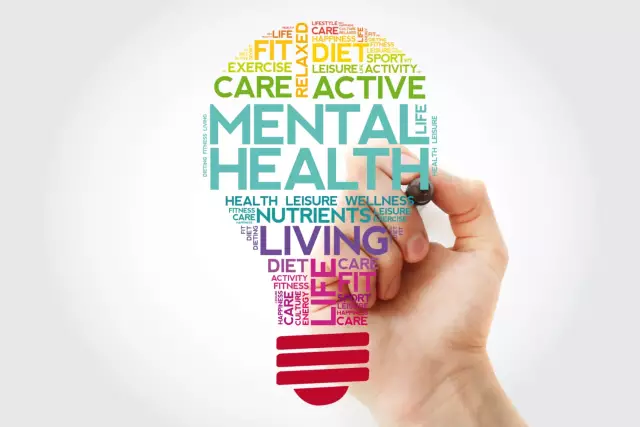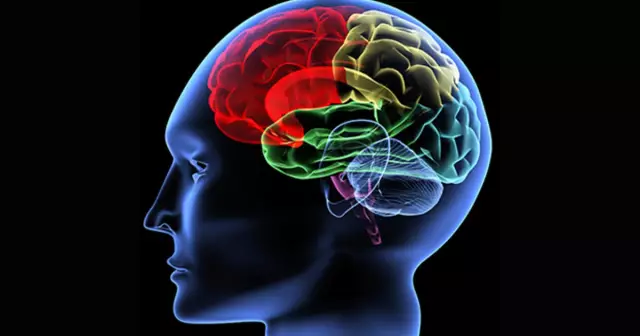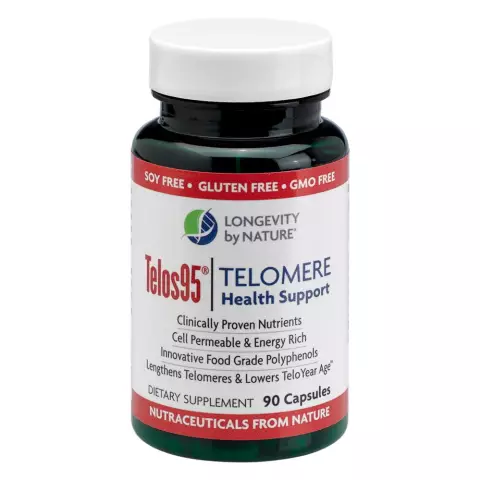- Author Rachel Wainwright wainwright@abchealthonline.com.
- Public 2023-12-15 07:39.
- Last modified 2025-11-02 20:14.
20 myths about health

Each of us has heard at least some of the myths listed below, and most believe that this is true. Now we will refute them.
1 carrots improve vision
This is one of the most common myths. It is believed that due to its high vitamin A content, consumption of carrots improves vision. This myth appeared during the Second World War. The British intelligentsia, in an attempt to conceal the use of radars, spread the myth that the pilots destroyed German targets due to the fact that they ate a lot of carrots and from this they had good eyesight.
In fact, carrots are really useful for preventive purposes, however, they are not capable of improving your vision.
2. Spinach makes us stronger
At the mention of this vegetable, one immediately remembers Popeye, who ate it in large quantities and was very strong.
Since spinach contains little iron, this vegetable not only does not make us stronger, but even vice versa. There are many foods that contain more iron than spinach.
3. A person should drink eight glasses of water a day
It is true that a person should consume about 2.5 liters of water per day, but this amount also includes the liquid contained in food. So this does not mean that we need to drink 8 glasses of water daily.
4. Turkey helps you sleep
Turkey contains the amino acid tryptophan, which can improve mood and sleep. However, it's worth noting that turkey has a much lower tryptophan content than cheese or pork. Most likely, the myth is based on the fact that many people feel sleepy after a hearty meal (such as turkey).
5. Coffee is bad for health
Coffee is the favorite morning drink of millions of people. Undoubtedly, its excessive use negatively affects the state of the nervous system, but if you take 2-3 cups a day, then the effect on the heart will only be beneficial.
You should, however, watch yourself. If you are too easily excitable and sometimes have trouble sleeping, you should avoid drinking caffeinated beverages.
6. Bananas are fatty foods
In general, it is not clear why so many people think. Most likely due to their high calorie content. In fact, 100 g of banana contains 0.5 g of fat and 95 kcal.
7. Eggs increase cholesterol levels
One egg contains only 1.6 g of saturated fatty acids, while a glass of milk contains 2.5% fat and 3 g of saturated fat. So this statement is not entirely correct. It's just that if you're in the habit of eating eggs for breakfast, make sure to consume as little cholesterol as possible for the rest of the day with other foods.
8. When there is a cold, it is necessary to eat, and when the temperature is better to go on a diet
This myth is based on the results of medical reports and dictionaries hundreds of years ago. In fact, this statement is not supported by any evidence.
9. Fresh food is healthier than frozen food
Frozen fruits and vegetables can be as healthy as fresh ones as they retain all their nutrients. In addition, fresh vegetables can lose these nutrients as a result of storage.
10. Chocolate causes acne
There is no scientific evidence that chocolate causes acne. It might as well be said that milk, sugar, and oil also cause acne.
11. Pain medication should only be taken in case of severe pain
In fact, pain relievers are most effective early in the onset of pain. Therefore, it is better to start taking them well in advance.
12. Nails and hair grow after death
It is not true. For nails and hair to grow, they need an appropriate level of hormones in the body, which is impossible after death.
13. Our brain is only used by 10%
This claim is attributed to Albert Einstein, but there is no evidence for this.
According to the conducted iconographic studies, it was found that there is no absolutely inactive part of the brain.
14. Cholesterol is harmful
Not all cholesterol is bad. In fact, there is "good" cholesterol and "bad". Bad comes from eating food that contains saturated fats (cheese, meat). This type of cholesterol contributes to the development of heart disease.
"Good" cholesterol comes from unsaturated fats (fish, seeds, nuts). It is beneficial for the body as it helps transport cholesterol through the arteries to the liver.
15. Using lipstick can lead to poisoning
This myth is based on the fact that in 2007 the Campaign for Safe Cosmetics group conducted a lead study of 33 lipstick brands. As a result of research, a third of lipsticks contained more lead than allowed by the norms, which gave rise to the opinion that lipstick can lead to poisoning.
In fact, even a "large" amount of lead in lipstick is so small that it cannot cause poisoning in any way.
16. If you shave your hair, it will grow faster and become coarser
In 1928, clinical trials were carried out, according to which it was proved that shaving did not affect further hair growth. And the hair seems coarser after shaving because it does not have a smooth end, like unshaven hair.
17. Can't swim after eating
A very old myth. In fact, after eating, it is better not to engage in any intense physical activity at all, as muscle or stomach problems may arise. But light and calm exercises, including bathing and slow swimming, are quite permissible.
But note that after drinking alcohol it is really better not to swim.
18. Reading in dim light impairs vision
In fact, reading in low light creates certain inconveniences, as the eyes are forced to strain and begin to hurt. But such reading does not cause permanent deterioration of vision.

19. Computer monitor is harmful to eyes
A very common myth that most people believe in. It is based on the fact that modern people spend most of their time in front of the monitor, both at work and at home.
Many studies have been carried out that have proven that video terminals do not harm human eyesight, as they emit very little radiation, which, moreover, is completely harmless.
20. By reducing the number of meals a day, we will improve metabolism
This is a fundamentally wrong statement. In fact, digestion requires a certain amount of energy and calories from the body. Therefore, by reducing the amount of food consumed, our body will also reduce metabolic rates in order to conserve energy.
And in order to increase metabolism, it is necessary not to reduce the amount of food consumed, but to eat foods rich in fiber, not fat. In addition, it is necessary to observe a break of no more than three to four hours between meals. This will improve the distribution of calories in the body, resulting in increased metabolism.
Found a mistake in the text? Select it and press Ctrl + Enter.






